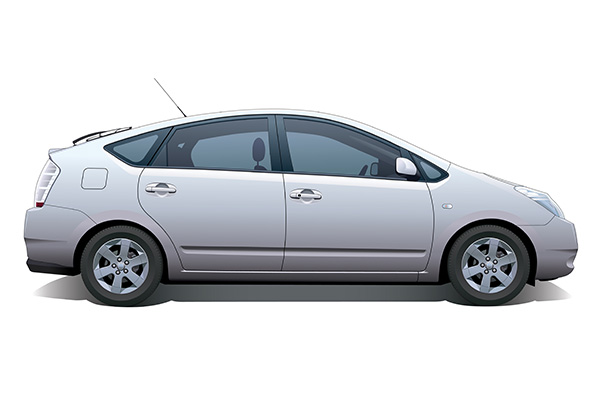
One of the main reasons drivers choose a Toyota Prius is its impressive fuel economy. Designed with hybrid technology to minimize fuel use, the Prius often delivers exceptional mileage compared to traditional gas-powered vehicles. But over time, some Prius owners notice a dip in MPG that can be frustrating—and sometimes confusing. If your Prius isn’t performing as efficiently as it used to, several factors could be at play.
Learning what causes fuel economy to drop can help you take the right steps to restore efficiency and keep your hybrid system running smoothly.
Changes in Driving Habits or Environment
Not every drop in fuel efficiency points to a mechanical problem. Sometimes, a change in your daily driving routine is all it takes to impact your MPG.
Short trips where the engine doesn’t warm up fully, increased idling, or more stop-and-go traffic can all reduce fuel economy. Cold weather also plays a role, as the hybrid system may run the gasoline engine more often to maintain warmth. Similarly, running the heater or A/C more frequently can use extra power and reduce efficiency.
Even something as simple as carrying extra weight, like added cargo or passengers, or using roof racks, can slightly decrease your MPG by increasing aerodynamic drag and engine load.
Low Tire Pressure
Tires that are underinflated create more rolling resistance, which forces your Prius to work harder and burn more fuel. This is one of the most common and easily corrected causes of poor fuel economy.
Check your tire pressure regularly, especially as seasons change. Cold temperatures can cause tire pressure to drop, sometimes below the recommended levels. Keeping tires properly inflated improves not only fuel economy but also tire longevity and overall vehicle safety.
Aging or Dirty Hybrid Battery
The high-voltage hybrid battery in your Prius is essential for fuel-saving performance. Over time, battery capacity can degrade, particularly in older vehicles or those with high mileage.
When the hybrid battery isn't holding a strong charge, the gasoline engine has to compensate by running more often, which reduces overall efficiency. In some cases, a weak battery can also affect regenerative braking and acceleration.
If you're seeing a consistent decline in MPG and your vehicle is more than 8–10 years old, it’s a good idea to have the battery tested. Some shops also offer hybrid battery reconditioning services, which can help extend the life of an aging battery pack.
Faulty Oxygen Sensors or Spark Plugs
Your Prius relies on sensors and ignition components to maintain the ideal air-fuel ratio. If an oxygen sensor is faulty, it can send incorrect data to the engine control module, causing the system to burn more fuel than necessary.
Likewise, worn or fouled spark plugs can lead to inefficient combustion, forcing the engine to work harder. Though hybrids don’t rely on the gas engine as much as conventional cars, these components still need regular inspection and replacement.
Ignoring these parts not only reduces fuel economy but can trigger warning lights or even damage other engine components over time.
Clogged Air Filter or Fuel System Issues
A clogged air filter restricts airflow into the engine, which can upset the air-fuel balance and reduce combustion efficiency. This may not trigger a warning light, but it can gradually decrease MPG.
Similarly, issues in the fuel system, such as a partially clogged injector or a failing fuel pump, can impact the engine's performance. These problems might also cause hesitation or reduced acceleration, especially when transitioning between electric and gasoline modes.
Routine maintenance, including replacing filters and inspecting the fuel system, helps keep your engine running smoothly and efficiently.
Using the Wrong Motor Oil
Toyota recommends specific oil viscosities for each engine model, and hybrids are especially sensitive to changes in engine load. Using oil that’s too thick can reduce efficiency by increasing internal resistance.
Make sure your oil is changed with the correct viscosity and specification. Using synthetic oil that meets Toyota’s standards helps your hybrid engine operate efficiently, especially during cold starts.
Why Prompt Diagnosis Matters
Fuel efficiency issues are sometimes dismissed as a minor inconvenience, but they often indicate larger problems developing within your vehicle. The longer you wait, the more strain your Prius may experience, potentially reducing battery life, engine performance, and system longevity.
Addressing these concerns early not only saves you money at the pump but also helps maintain the long-term health of your hybrid system.
Restore Efficiency With The Model Garage in Berkeley, CA
At The Model Garage in Berkeley, CA, we specialize in hybrid vehicle service, including full diagnostics for Toyota Prius models. Whether you're dealing with reduced fuel economy, battery issues, or sensor faults, our experienced technicians can pinpoint the cause and help restore your Prius to peak performance.
If your MPG has taken a hit lately, don’t wait to take action. Schedule a service with us today and enjoy the full benefits of your Prius’s fuel-saving technology.